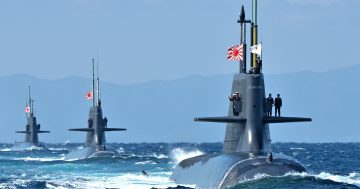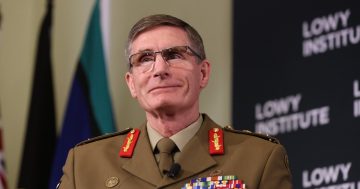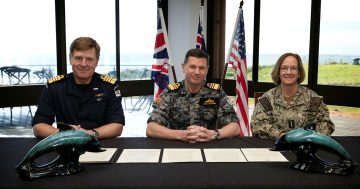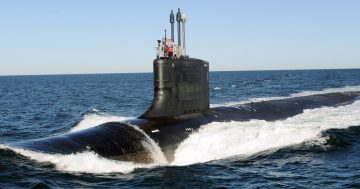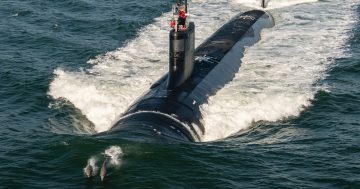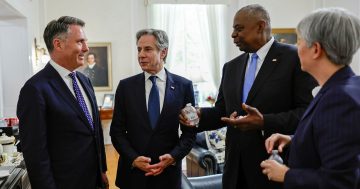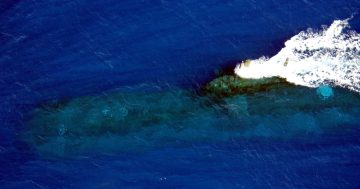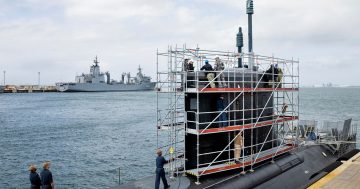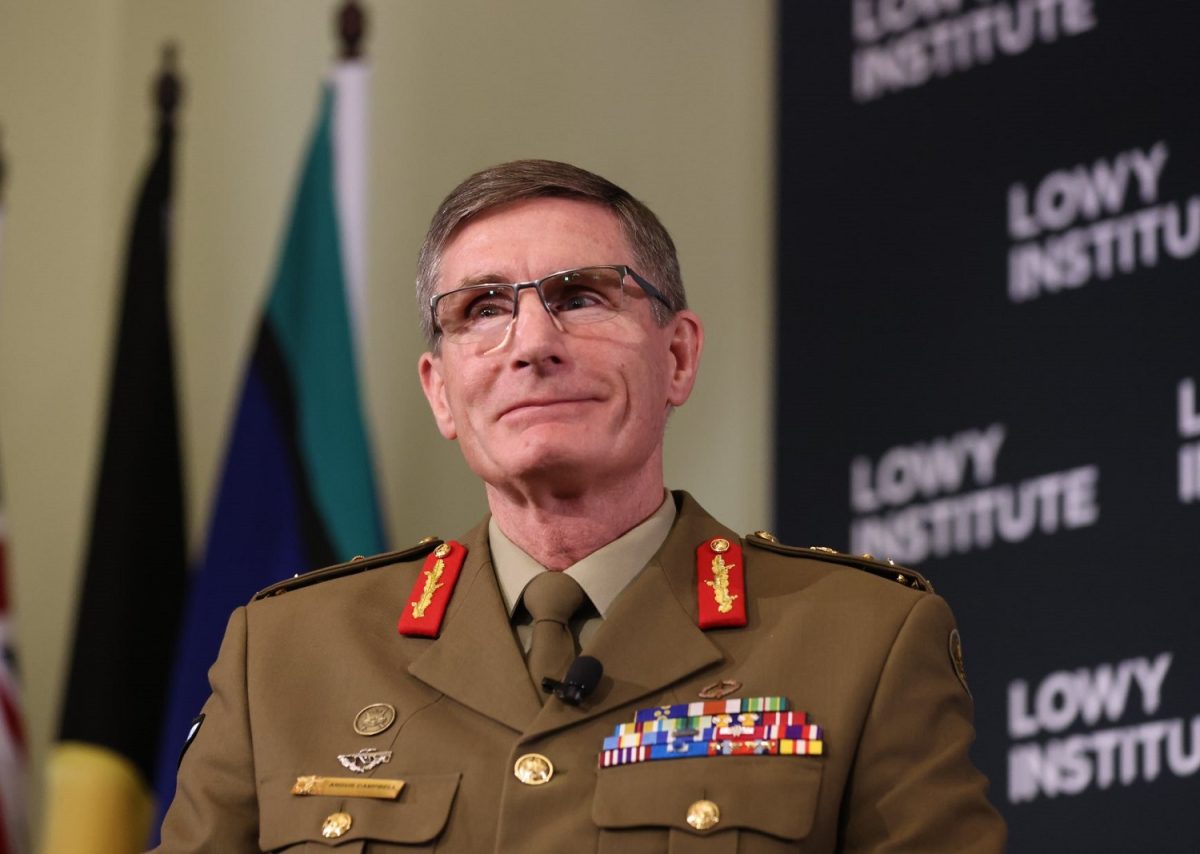
Chief of Defence Force General Angus Campbell told the Lowy Institute on 10 April that “the prospect of state-on-state conflict is less remote than it was”. Photo: Lowy Institute.
Australia’s Chief of Defence Force General Angus Campbell gave a wide-ranging speech to the Lowy Institute in Sydney on 10 April.
In his speech, he touched on subjects such as the war in Ukraine, veterans’ suicide, the Afghanistan war crimes investigation, security arrangements in the Indo-Pacific region, and the Defence Strategic Review (DSR) – the public version of which will soon be released by the government.
On the DSR, with its release so close he wouldn’t be drawn on its contents, but did say its recommendations were already under consideration by the government.
General Campbell said that the strategic environment in our region had “deteriorated”, a point emphasised in the former Morrison Government’s 2020 Defence Strategic Update, which gained bipartisan acceptance when it was released.
“Trends including large-scale military modernisation, technological disruption and multiplying climate risks continue, and the prospect of state-on-state conflict is less remote than it was,” he said.
“Military capability within the region, of both range and lethality, is challenging across all domains: sea, land, air, space and cyber. We live in an era and a region of great power competition. An era that may last for some time.”
In response, he said the Australian Defence Force had increased its presence in the Indo-Pacific and was seeking to promote an environment conducive to Australia’s national interests.
“Our efforts are directed toward constructively shaping that environment, deterring conflict and maintaining the capacity to operationally respond as directed by government,” he said. “This is done by our own efforts and by deepening engagement with allies, partners and like-minded friends, as well as by seeking to better understand those not of like-mind.”
Obviously, the most visible and recent of those engagements was the AUKUS construct with the UK and US.
“AUKUS is not a new defence alliance,” he said. “It is a trilateral partnership to deepen practical security technology cooperation with our long-standing and trusted partners, the United Kingdom and the United States.
“AUKUS is enhancing our military capability in areas most relevant to the emerging strategic environment in the Indo-Pacific, and AUKUS partners have taken important steps towards implementing the two AUKUS Pillars – nuclear-powered submarines, and advanced capabilities,” he added.
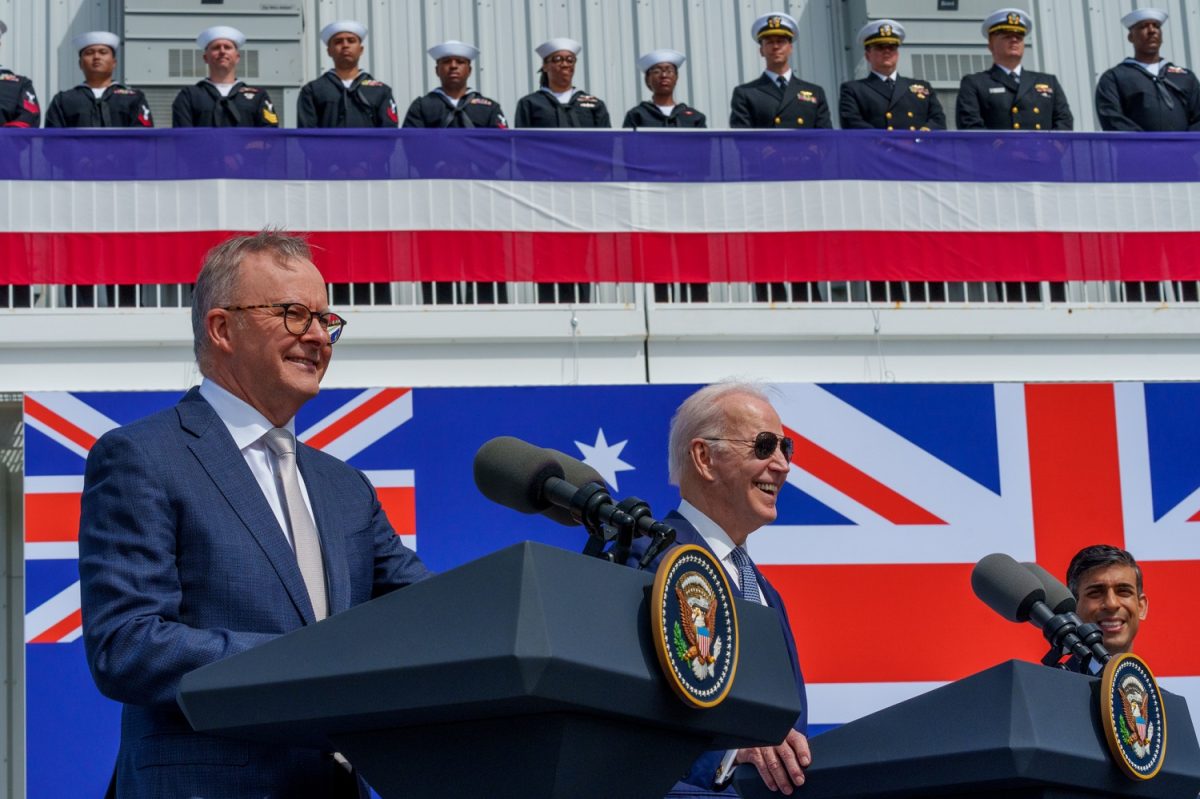
Prime Minister Anthony Albanese, US President Joe Biden and British PM Rishi Sunak announced the AUKUS submarine arrangement in San Diego last month. Photo: PMO Facebook.
General Campbell described Australia’s security and the wider region’s security as “interdependent” and said that security and prosperity are affected by the presence and absence of the other. He said, with that in mind, the ADF is a necessary component of Australia’s statecraft in the region and across the world.
“With the boundaries between competition, coercion and conflict becoming increasingly blurred, there is a need today for a greater integration of and nuance in the application of power,” he said.
“The ADF’s approach to this increasing ambiguity is termed ‘integrated campaigning’, and it involves military power being brought together with other elements of national power – be they economic, diplomatic, trade, financial, industrial, scientific and informational – and, when directed by government, also combined with the military and national power of allies and partners.”
Coming back to AUKUS, General Campbell described it as a response to the deteriorating strategic environment.
“Through the Optimal Pathway [for Australia to acquire conventionally armed, nuclear-powered submarines], Australia will transform its strategic posture, bolstering security and stability in the Indo-Pacific for decades to come,” he said.
“The trends affecting our region demand stealth as well as higher levels of speed, range, manoeuvrability, survivability and endurance from our submarines – all characteristics of nuclear-powered submarines.”
But he stressed that AUKUS was not just about nuclear-powered submarines, adding that the forthcoming ‘Pillar II’ of the construct will deliver many other advanced capabilities that will be developed by the partners.
“The six areas chosen for Pillar II will make the most significant contribution to future military capability: undersea warfare, electronic warfare, hypersonics and counter-hypersonics, advanced cyber, quantum technologies and artificial intelligence,” he said.
“With these capabilities, certainly they are extraordinary, and they will fundamentally increase the lethality and the capability of the ADF.
“But nuclear-powered submarines, and the advanced capabilities being pursued under Pillar II, are insufficient alone to guarantee our national security,” he added.
“Ultimately, the success of the ADF in carrying out its mission, and in crewing and utilising the capabilities we are acquiring, lies in the character of our people and the culture of our teams. They are at the heart of all that we do, and are the most important component of military capability.
“That is why our work in response to the Afghanistan Inquiry and the Royal Commission into Defence and Veteran Suicide is so important.”
Original Article published by Andrew McLaughlin on Riotact.


